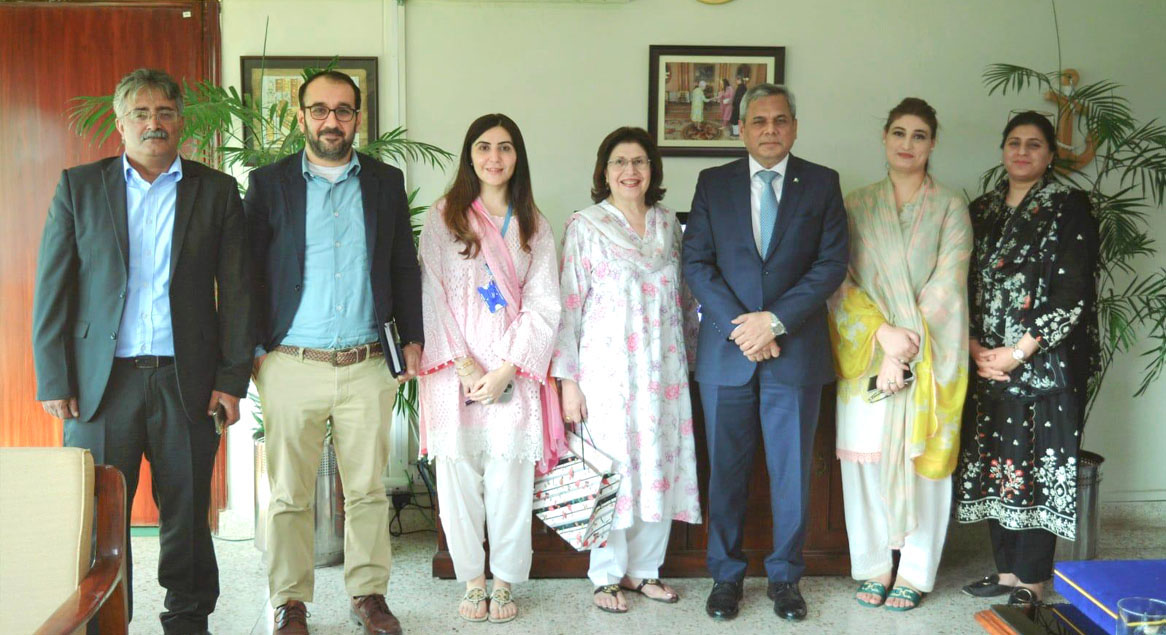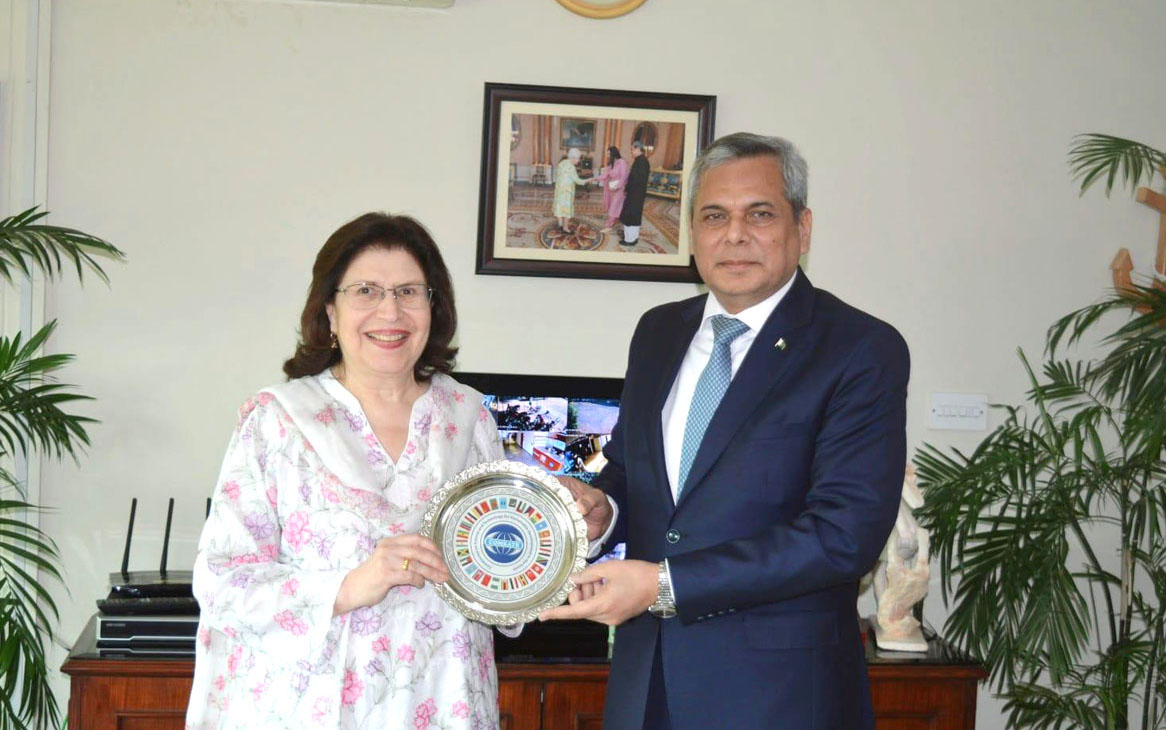Islamabad, June 12, 2024. A delegation from Pakistan’s Living Indus Initiative, led by renowned environmentalist and Senior Advisor at the UN Resident Coordinator Office (UN RCO), Ms. Aban Marker Kabraji, visited the COMSATS Secretariat to meet with Executive Director Ambassador Dr. Mohammad Nafees Zakaria. The purpose of the visit was to explore potential collaboration between COMSATS and the Living Indus Initiative, aiming to combine the resources and expertise of both organizations to address critical issues related to water, agriculture, biodiversity, environment, and climate change. Through this partnership, both parties seek to leverage technological solutions for ecological restoration and increased resilience to climate change, aligning with their respective agendas.

The Living Indus Initiative, a World Restoration Flagship of the United Nations Decade on Ecosystem Restoration, is being undertaken by the Ministry of Climate Change and Environmental Coordination (MoCC&EC) of Pakistan and the United Nations. The Living Indus Initiative is committed to restoring the biodiversity of the Indus Basin through various projects focused on agriculture, biodiversity, finance, forests, governance, groundwater, livelihood, pollution, and sustainable urbanization. To formally initiate the collaboration, representatives from both organizations have agreed to pool their resources and expertise towards promoting innovative solutions and developing new tools and mechanisms to address the climate and nature crises, enhancing socio-ecological resilience.

During the meeting, it was decided that COMSATS would provide extensive support to the Living Indus Initiative through its flagship project, COMSATS Internet Services (CIS), COMSATS Centre for Climate and Sustainability (CCCS) and its Network of 25 International S&T Centres of Excellence. This support will focus on various ongoing and upcoming projects, including the Digital Knowledge Sharing Platform, GLOF, Renewable and Clean Energy, Resilient Agriculture, Biodiversity, Zero Plastic Waste, and Managing Agricultural Wastewater, among others.
The meeting established a solid foundation for a formal agreement between COMSATS and the Living Indus Initiative and concluded with a plan to explore and discuss further areas through official correspondence, enabling both parties to harness their existing resources and enhance their efforts in line with Climate Action.





